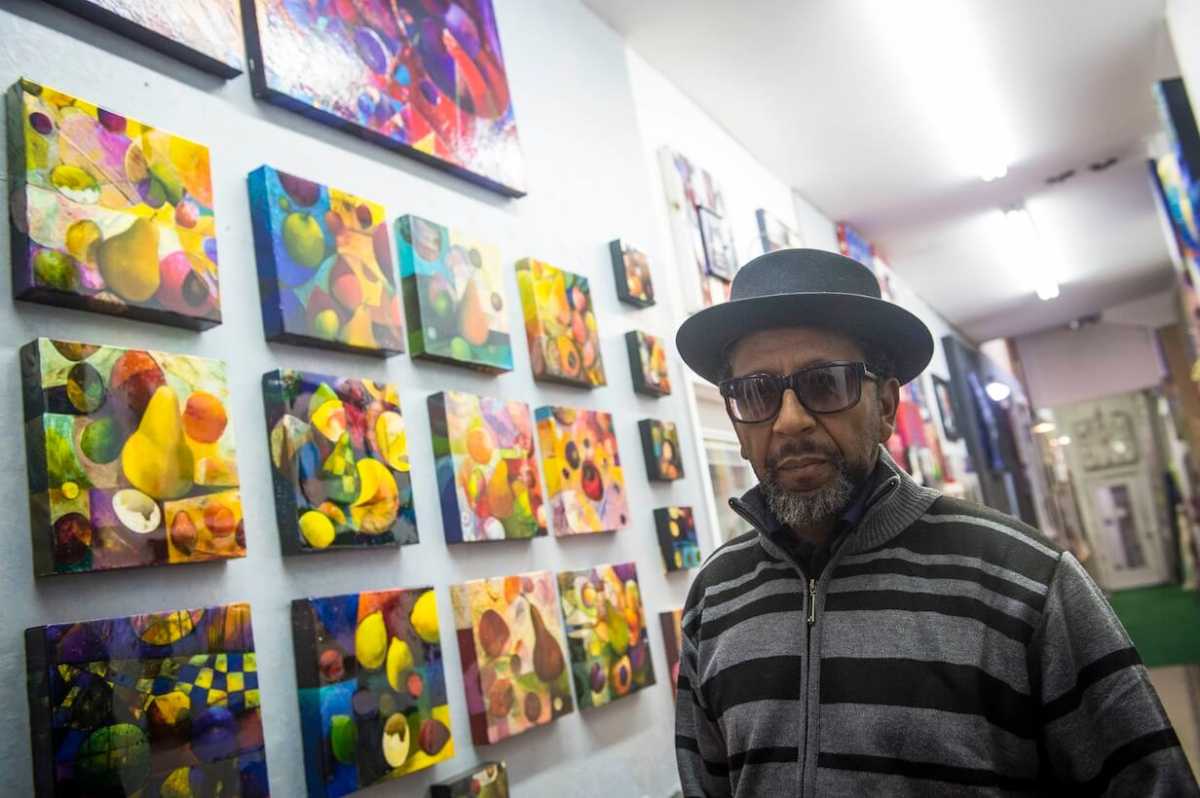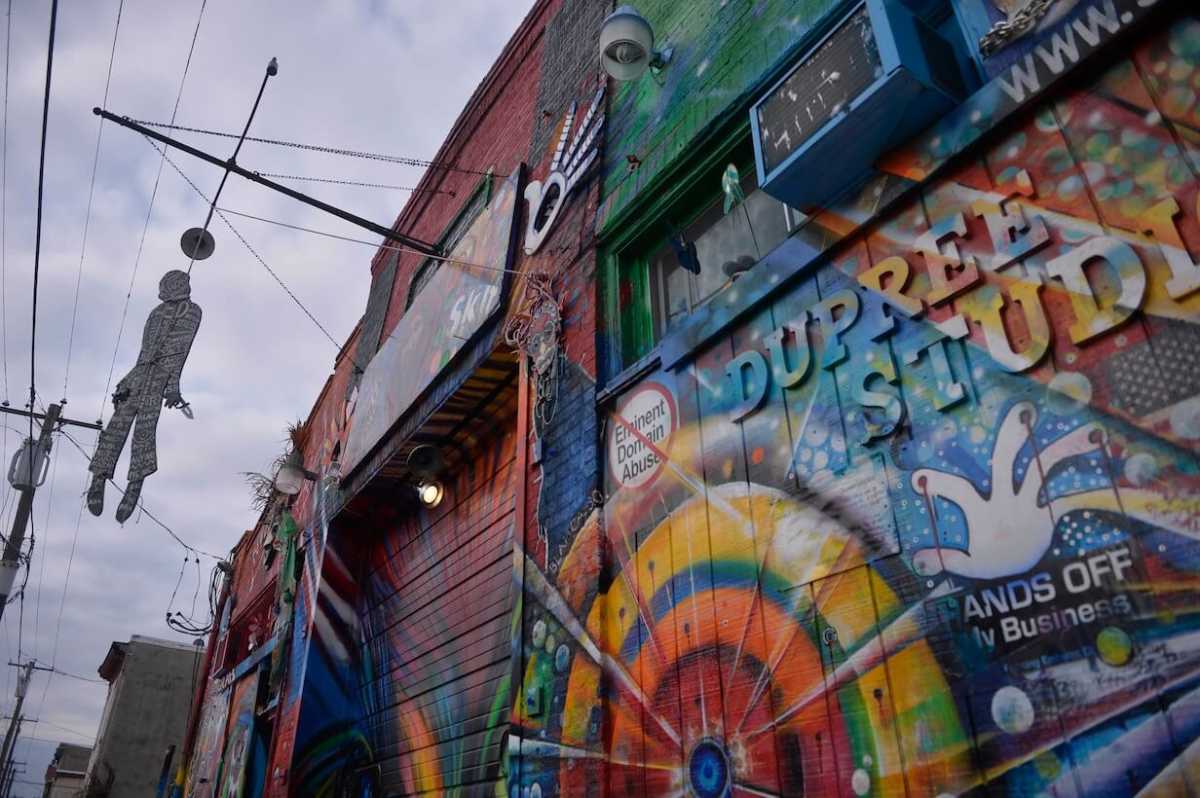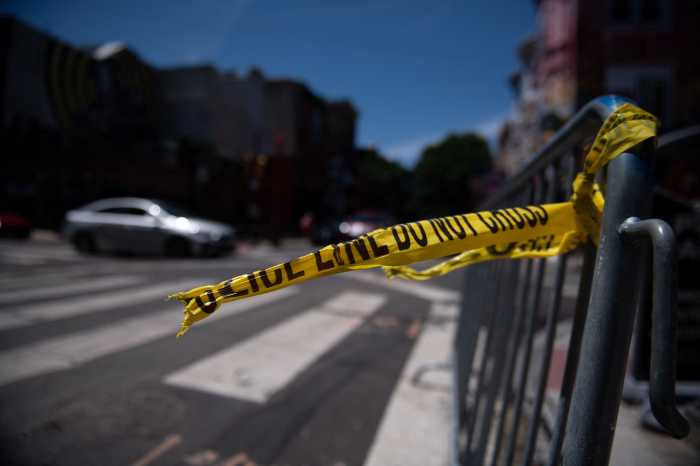“This contemporary Jim Crow law of eminent domain is used for seizing poor communities, and a large proportion of it is black communities,” Dupree said. “There’s a privileged elite out there that thinks, ‘This’ll never happen to me.'”
“I don’t know how this is going to end,” Dupree said. “I always wanted to be known for my art. I never thought it would be like this — victimized by the politicians I voted for in the city that I love so much.”
Pennsylvania passed Senate Bill 881 to restrict eminent domain seizures in 2005, but it didn’t go into effect until Jan. 1, 2013.
Dupree’s property was condemned on Dec. 27, 2012.
Dupree received support and media attention across the nation after he appealed the condemnation in 2013.
In early 2014, he premiered a show of new work entitled “Broken Dreams in the Promise Zone” about the experience of the condemnation.
In June, Judge Ellen Ceisler issued a decision that upheld the condemnation of Dupree’s studios in one sentence.
Ceisler issued a second opinion in September explaining the rationale behind her decision and opposing appeal by Dupree’s lawyers. Four days later she released a third opinion on the case to correct “significant typos” in the second opinion.
The appeal is now headed to Commonwealth Court.






























